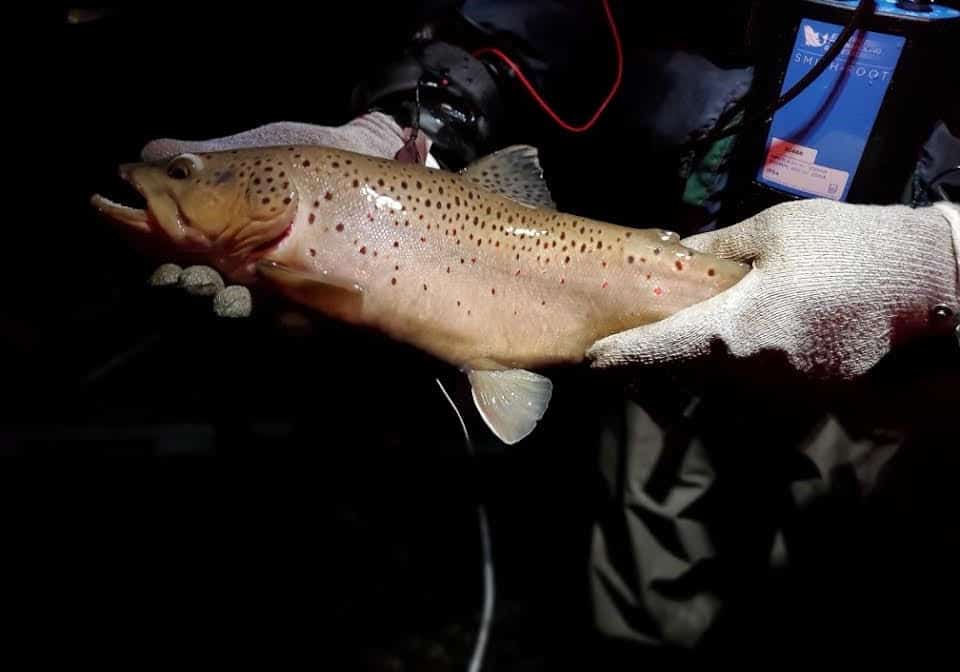Olive takes helm of Arkansas fisheries
ON 06-08-2022
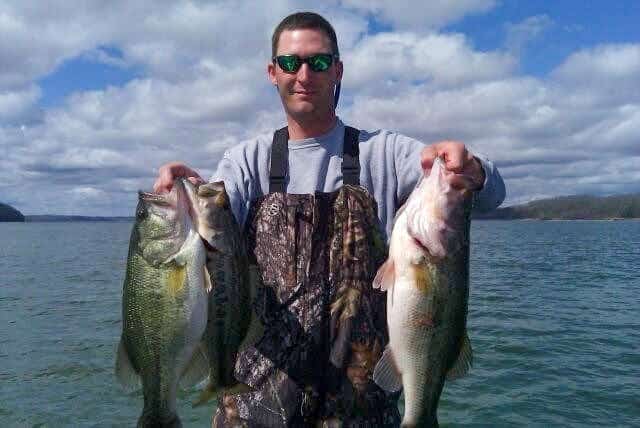
June 8, 2022
Randy Zellers
Assistant Chief of Communications
LITTLE ROCK — Jason Olive of El Dorado has been chosen to lead the Arkansas Game and Fish Commission’s efforts in fisheries management, hatchery production and aquatic conservation as chief of the agency’s Fisheries Division. Olive replaces former Fisheries Chief Ben Batten, who was promoted to AGFC deputy director at the May 19 Commission meeting in Little Rock.
Olive grew up in northern Alabama, where he fell in love with fishing on some of the famed Tennessee Valley Authority reservoirs, such as Pickwick and Guntersville. He is a lifetime member of the Bass Anglers Sportsman Society and has been active in bass fishing clubs throughout his life.
That passion for fishing led Olive to pursue a career in fisheries management. He received bachelor’s and master’s degrees in Fisheries Science from Mississippi State University before taking a position with the AGFC as a fisheries biologist in 2003, where he worked for five years. He left to broaden his experience with a four-year stint with the Mississippi Department of Wildlife Fisheries and Parks before returning to The Natural State in 2012 as a biologist in the AGFC’s Monticello Regional Office. From there he progressed through the ranks to regional supervisor, assistant chief of fisheries management and now chief of the AGFC Fisheries Division.
In addition to his capacity at the AGFC, Olive serves as current president of the Southern Division of the American Fisheries Society, only the fifth Arkansan to hold this title in the organization’s 70-year history, as well as the current chairman of the Association of Fish and Wildlife Agencies subcommittee on water.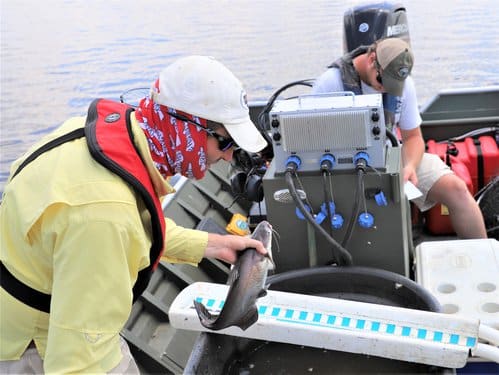
During his tenure at the AGFC, Olive has seen many projects come to fruition, including the completion of a massive renovation at Lower White Oak Lake in Ouachita County. While the decision to draw the lake down and repair the lake’s water control tower had been made by the time Olive arrived, he was able to work with AGFC Fisheries Supervisor (now assistant chief) Eric Brinkman and Fisheries Supervisor Andy Yung to lay the foundation for a successful rebirth of the lake, which has lately become one of the top locations in Arkansas to go hunting for a double-digit largemouth bass.
One of Olive’s biggest accomplishments for anglers was the introduction and coordination of large-scale habitat projects with local biologists taking lead roles in these massive fieldwork efforts.
“Former AGFC Fisheries Chief Mark Oliver had said large-scale group projects in the field were something that had fallen by the wayside when some of the older fish-sampling methods were discontinued,” Olive said. “We still had meetings and conferences, but getting biologists from across the state together to do fieldwork was missing.”
Habitat projects fit the need for a “many hands make light work” concept, and with aging reservoirs losing cover, the brush or other attractors being added were a benefit to anglers.
“We can accomplish in one week what an individual district may need an entire year to complete,” Olive said. “But it’s also about all of our guys working together and sharing information so everyone can benefit.”
Another effort for anglers spearheaded by Olive was the restructuring of how funding was transferred for certain Marine Fuel Tax Fund projects. Under previous methods, the AGFC would pay partner agencies, then request reimbursement from the Arkansas Department of Transportation, who held the funds. This transaction ultimately counted against the AGFC’s budget allocations even though the funding was actually held outside the agency.
“We essentially had money in an account that we couldn’t use to improve or increase public access to fishing and boating areas because of a technicality,” Olive said. “We were able to work out a system with ArDOT to streamline the payment process and get more work done for anglers and boaters throughout the state.”
Olive says one of the biggest challenges and opportunities he sees in the near future is the continued effort to build support from anglers. “We’ve done some good things recently, like the Black Bass Angler Forum and the Arkansas Fishing Industry Summit just before COVID hit, but we need to do more,” Olive said. “We need to continue to not just say we want to get public input so we can check a box, but to take that input and engage with our anglers in a constructive way.”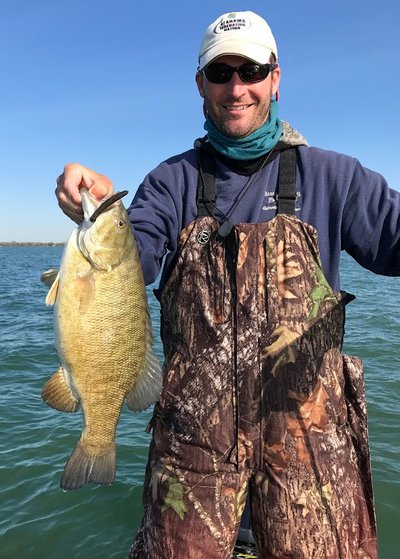
Aging reservoirs and infrastructure also are looming needs that Olive recognizes. With most of Arkansas’s reservoirs being built more than 50 years ago, it will take some creative thinking to revitalize some of the state’s famous fisheries.
“We have some opportunities in the near future to capitalize on federal resources that are focused on infrastructure as well as renewed vigor in imperiled species conservation and outdoor recreation, and we need to figure out how we can use those opportunities to benefit Arkansas’s aquatic resources and those who enjoy them,” Olive said.
But the biggest challenge Olive sees for all fisheries professionals is the fight against aquatic nuisance species, such as invasive carp, zebra mussels and plants like giant salvinia. “Invasive species have the potential to impact fisheries on a large scale,” Olive said. “We’re already fighting plants like alligatorweed and giant salvinia, as well as invasive carp. That’s effort and funding being redirected from enhancing habitat and improving fisheries.”
Olive’s philosophy toward facing these challenges is very similar to an angler’s approach to catching a limit or figuring out the right lure for a day on the water: Figure out why something isn’t working and find a creative solution.
“As I think about the challenges we are facing in aquatic resources management in Arkansas, I am reminded of something my first supervisor at AGFC, Don Turman, taught me, ‘When you come across a road block, you don’t give up trying to reach your destination. You just find another way to get there.’”
Recent News
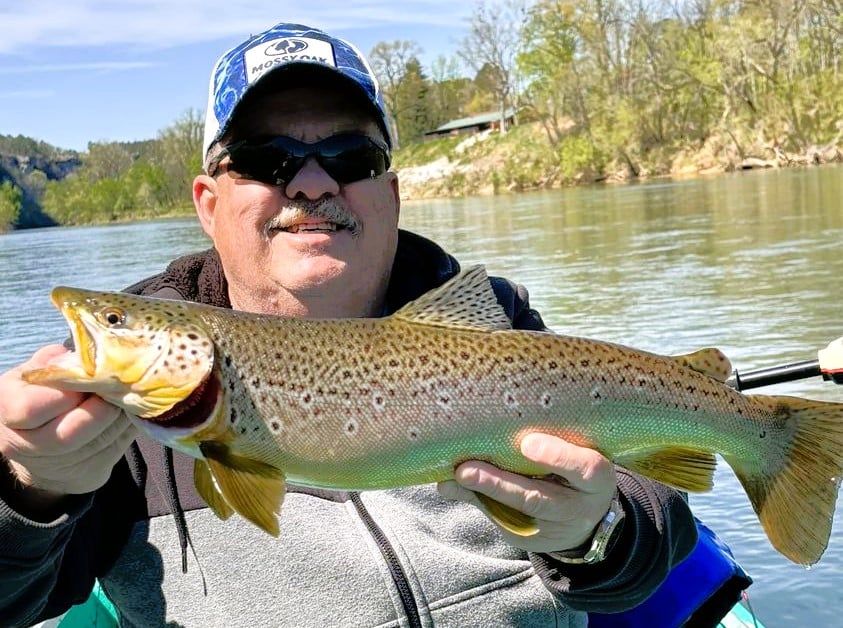
Arkansas Wildlife Weekly Fishing Report
Apr. 18, 2024
Subscribe to Our Weekly Newsletter E-mails
Don’t miss another issue. Sign up now to receive the AGFC Wildlife Weekly Newsletter in your mailbox every Wednesday afternoon (Waterfowl Reports are published weekly during waterfowl season and periodically outside the season). Fishing Reports arrive on Thursdays. Fill in the following fields and hit submit. Thanks, and welcome!

